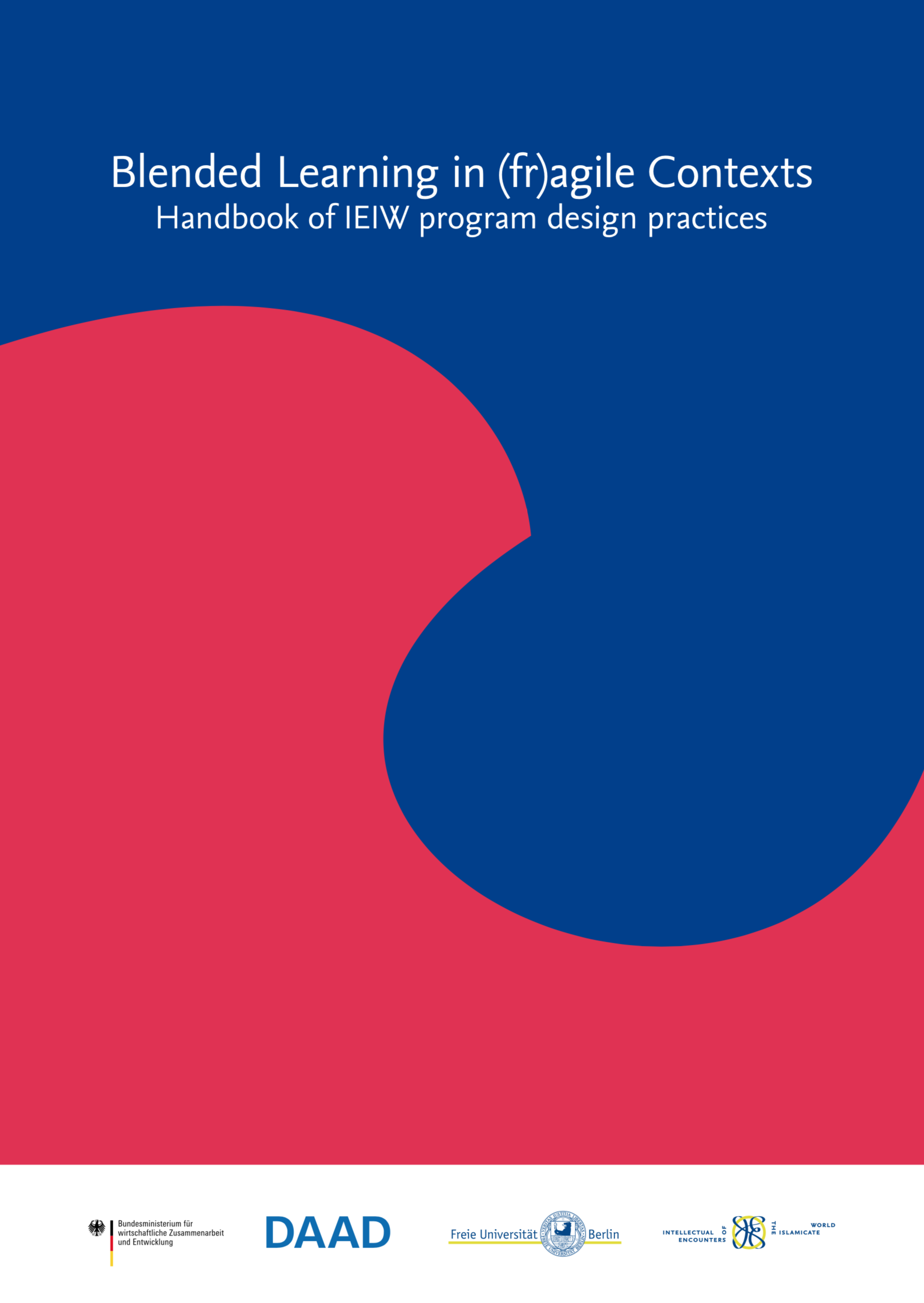Blended Learning in (fr)agile contexts. A handbook of program design practices
Web version: “Blended Learning in (fr)agile Contexts” | PDF version: “Blended Learning in (fr)agile Contexts”
The creation of the program “Intellectual Encounters of the Islamicate World” at the Freie Universität Berlin was a shared initiative of stakeholders for the internationalization of higher education and development in Germany to pilot an online master degree. Growing awareness of the crucial role that access to higher education and advanced professional training play for economic development in fragile contexts culminated in the launch of an online master program, which was expected to foster capacities for intercultural dialogue in future professionals and to broaden access to advanced graduate degrees for marginalized groups.
Between 2013 and 2019, this digital intervention had to balance a complex set of higher education, development, and political goals. Operating within the fairly rigid legal and organizational framework of a German university, the project team succeeded in overcoming expected and unexpected challenges while relying on limited resources. The shape they gave to the resulting project displays a number of unique characteristics, unforeseen and unplanned at launch time. For the academic component of instruction and assessment, the team developed innovative blended-learning approaches and instructional formats. Likewise, the project saw the emergence of effective administrative workflows and suitable strategies for flexible project management.
This handbook attempts to capture key aspects of the project design processes in order to make them available to a broader audience for discussion and reflection. Drawing on numerous aspects of administration, multiple stakeholder perspectives and occasional anecdotes of the project history as recounted by various participants, its pages contain a concise, ex-post interpretation of crucial milestones factoring in the project’s success. Although they are intimately connected and mutually constitutive in reality, they have been separated here analytically.
One half of this handbook illuminates strategies for the design of an academic format geared to skills-training in transdisciplinary research and intercultural dialogue, viewed from learning and instruction perspectives. The ultimate form of the program’s educational design was influenced strongly by the cognitive skills defined as successful learning outcomes and by the blended learning technologies available at the time. The insights captured here may prove useful to developers of technology-enhanced learning arrangements that are expected to offer a composite of cognitive skills, both disciplinary and general, suitable for graduate or post-graduate students of higher education.
The other half of this handbook takes an administrative perspective to describe salient aspects of project design. The work of organizing and governing an interdisciplinary distance-learning program for students from a fragile context must address the contiguities of socio-politically fragile contexts. Strongly shaped by concrete political and cultural tensions, a key requirement for the project’s functionality was its strategic compatibility with the higher education landscape in Germany and operational compliance with its host university in Berlin. It may therefore yield reference points for practitioners negotiating the challenges entailed in bridging similarly fragile contexts within a more structurally robust educational environment.

